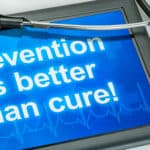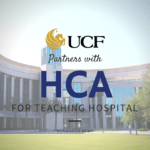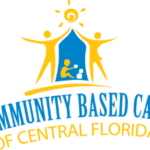It might be safe to say that we all fall into one of two groups when it comes to shots: We either want nothing to do with them, or they’re a painless pinch we barely notice.

Regardless of our grouping, most people only think about shots on an as-they-are-needed basis, if that, 30-year-old Jamie Schanbaum said.
The flu comes and goes, and the symptoms become all too familiar. But, consider experiencing those symptoms one night and feeling as though “thousands of pounds of sand” are in your body. After eventually being unable to walk, you end up in the hospital. Then, in less than a day, you’re diagnosed with meningococcal septicemia, a type of meningitis. Months later, while still in the hospital, your fingers and both of your legs are amputated.
That was the life-threatening experience Schanbaum went through at the age of 20. While attending the University of Texas at Austin, she was quickly rushed to the hospital on Nov. 13, 2008. She mentioned she had been through the flu before but never experienced something like what she did the night before going into the hospital.
“Not everyone feels the symptoms or gets the experience of it. But when it comes to any situation, you really just have to listen to your body,” Schanbaum said.

Especially for the meningococcal disease, she wasn’t fully aware of the importance of vaccinations beforehand. After her experience with the disease, Schanbaum now spends her time sharing her story in as many ways as she can.
Her aim is to raise awareness of the importance of vaccinations. With her nonprofit, The JAMIE Group, and being a GSK spokesperson, she does her best to help educate and inform people of meningitis, Schanbaum said.
On Wednesday, April 10, Schanbaum met with medical professionals from around the Central Florida area at Nemours Children’s Hospital in Lake Nona’s Medical City. The event was organized by Robert E. Colon Jr. of the Florida Department of Health.
As part of the Immunization Section, Colon’s goal was to show the importance of vaccinations while empowering professionals.
Through empowerment, the hope is to have a champion of vaccine education and information in clinics, offices and hospitals alike. Colon also mentioned that we have to think about the entire community. When we don’t vaccinate, we’re putting the lives of teachers, co-workers, or even our family at risk.

“The teenager over at University High School, or the little kids in Meadow Woods Elementary. All of those kids are our kids,” Colon said.
The evening began with Schanbaum sharing her story. In answering questions afterward, she discussed with others how to best share information about vaccines. Participating in forums or visiting hospitals are ways for Jamie to help others cope with similar situations. She also shares her gratefulness to the medical professionals she meets.
“Sometimes it’s a thankless job, especially for nurses. That can be emotionally frustrating, so I always take the time to thank them at the end,” Schanbaum said.
Emphasizing the power of stories, Dr. Kenneth Alexander of Nemours mentioned that those who are a part of the anti-vaccine movement can no longer be persuaded through data or statistics alone.
Just as Schanbaum shared her story, medical professionals must use stories as a means to help people realize the importance of all types of vaccinations. The effects of vaccinations are many, Alexander shared.

Part of Schanbaum’s story that she shares also reflects Alexander’s sentiments. She spends time to let people know that one choice or event has a lot of different effects. Whether something is fair or not is beside the point. You just have to learn how to roll with the punches. Your struggles are what make you unique, Schanbaum also mentioned.
Schanbaum would bike often at school before her experience in 2008. After that experience, she began to learn how to walk on prosthetic legs in 2009. By developing her core strength, she was able to get on her bicycle in 2010. One year later, she won a gold medal in the cycling games at the U.S. Paralympics. Just being able to get back on a bike alone was something she didn’t expect.
“You realize a lot of things are possible. We all end up surprising ourselves,” she said.
Her physical pains are plenty, she mentioned, but emotionally she still feels some impact. Having shared for one of the first times, she mentioned that six months ago she was having pain-related issues with her prosthetics. She had to remove them in order for her to recover. The removal essentially kept her bed-bound for almost three months.
Feeling frustrated, she began to question how the rest of her life would look and if she needed surgery. The issue she was having was that her prosthetics weren’t fitting her comfortably. But because of the emotional impact, she had trouble sharing her frustration and pain. It was a matter of finding a way to express her emotions, she shared.
“We just need to get creative. Mental health is so important, and our brains can really make us doubt so much. But if you can figure it out, then man, doors can open,” she said.

In sharing her story, she feels humbled by the opportunity she’s been given. She continues to inform others about the impact it had on her and her family and her emotional experience. To her, it’s not just about knowing what vaccines are but understanding why they are a necessity to get.
“I feel really lucky. As I share my story more and more, I’m still in disbelief this is the successful outcome, and that’s not always true for others,” Schanbaum said.


